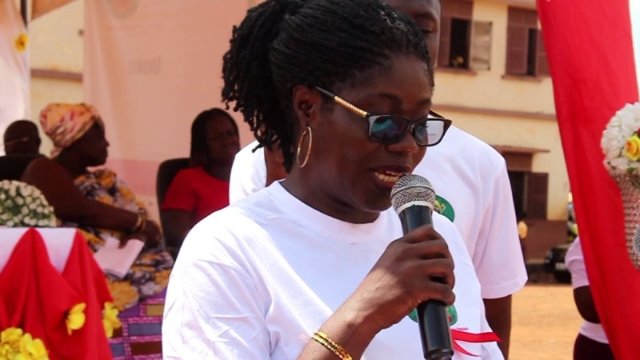The Ghana AIDS Commission has revealed that Christians constitute about 80 per cent of Persons Living with HIV (PLHIV) in Ghana.
Officials attribute the trend to less active social mobilisation and community participation in the campaign on risk behaviours.
Speaking at an event in to mark World Aids Day at Kwadaso in the Ashanti Region, Technical Coordinator for Ghana AIDS Commission, Olivia Graham, said the Commission was strengthening partnership with churches for increased awareness, voluntary testing and anti-retroviral use.
“I would like to make a special appeal to the church because they are in the unique position to help achieve the 90-90-90 target,” she said.
“Indeed Christians are the majority population in the country and statistics show that 80 per cent of persons living with HIV in Ghana go to church, therefore, the AIDS commission seeks to strengthen its partnership with the church and encourage the church to use its pulpit to mobilize its members to test for HIV and support those who test positive to access and attend to anti-retro-viral treatment,” she added.
This year’s World Aids Day held in Ashanti Region was on the theme, “Communities make a Difference; Help End AIDS.”
The region has the highest prevalence rate in Ghana, despite a recent dip in the figures.
Ghana AIDS Commission and its technical agencies say they are ensuring the standard model of care is used across all health facilities.
The Commission also has a target to expand preventive, treatment and other care services accessible at a faster pace in its bid not to leave anyone behind.
Coordinator for Ghana Health Service for HIV/AIDS, Dr Agyarko Poku, believes the church plays a critical role in transforming the behaviours of persons in society.
He wants pastors and men of God must be engaged.
“We hope that as many that identify we are able to put them on the ART [Anti-Retroviral Therapy],” he said.
Impact on Labour
Officials of Ghana AIDS Commission also revealed that Ghana’s working population is being lost to HIV and its related illnesses.
Available statistics show that average productivity loss to HIV and its related ill health is about five days a month.
Stakeholders are worried because 170,000 adults diagnosed to be positive are not on Anti-Retroviral Therapy as well as 50 per cent of persons living with HIV are also not on Anti-Retroviral Therapy.
“It is not only a health issue but has socio-economic dimensions. Five days a month is a huge loss to Ghana’s economy. If this trend must be allowed to continue we definitely cannot achieve government ambition of Ghana-Beyond Aid agenda,” said Dr Poku.
Consequently, stakeholders say HIV/AIDS preventive, treatment and care services must be seen as an investment to push the country towards a healthcare sector that propels sustainable development.
Ashanti Region Minister, Simon Osei Mensah, wants the Ghana Health Service to mainstream HIV-AIDS management services in its decentralised structures.
“Regional and district directors of health services have signed performance contracts with well-defined key performance indicators to enhance management efficiency and accountability and monitoring of HIV, Tuberculosis and Malaria programmes,” he said.
Meanwhile, stakeholders and communities are being employed to get involved in the fight against HIV/AIDS as the country thrives to meet the 90-90-90 ambition by 2030.


Comments are closed.